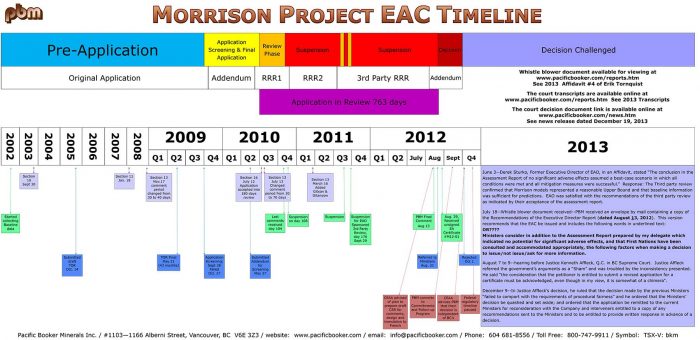Issues & Community Blog - Andrew Weaver: A Climate for Hope - Page 7
Effective today, BC businesses can now incorporate as Benefit Companies
In May 2019, my private Member’s bill: Bill M209: Business Corporations Amendment Act, 2019 received royal assent but required an Order in Council to become enacted. That happened today. I’m delighted to report that effective immediately, the province is now officially the first jurisdiction in Canada to allow companies to incorporate as benefit companies.
As you will see from the government press release (that I reproduce below) I was pleased to sponsor this bill and to collaborate with government to see it become the first ever opposition private members’ bill passed into law in B.C. Our province is home to incredibly innovative companies that want to play a larger role in addressing the challenges and opportunities we face. This legislation helps position our province to be a leader on the cutting edge of global economic trends. By becoming the first jurisdiction in Canada to create benefit companies, B.C. can position our economy for success as we work to recover from the impacts of COVID-19 and beyond.
My bill amended the Business Corporations Act to create a new Part 2.3 that enabled companies to become benefit companies. These companies will have to meet certain requirements, including:
- Committing in their articles to operate in a socially responsible and environmentally sustainable manner, and to promote specific public benefits;
- The directors must act honestly and in good faith to pursue public benefits and consider the interests of persons affected by the company’s conduct
- Reporting publicly against an independent third party standard.
The choice to become a benefit corporation status is completely voluntary and has no impact on other existing corporations, other corporate forms, taxes or government regulation
It’s generally recognized that Canadian corporate law does not have a strict “shareholder primacy” rule as the US does, so directors of companies in Canada have more discretion to pursue a broader mandate beyond maximizing shareholder profits. However, this legislation was needed to
- Provide clarity for directors and shareholders about the nature and mandate of the company – avoid the risk of a shareholder challenge regarding the director’s duties;
- Provide certainty for impact investors of the nature and mandate of the company;
- Enable companies to attract capital while being true to their mission as they grow;
- Protect the vision of the founders of benefit companies from shareholder challenges;
- Provide a simple framework for companies to adhere to that is legally and commercially recognized.
This legislation also encourages more companies to pursue a socially responsible and environmentally sustainable approach to business, creating beneficial outcomes for society as a whole and leveraging the power of business to help us to tackle significant social and environmental challenges.
Below I reproduce government’s press release issued today. I am grateful to the Minister of Finance, the Legislative drafters, and Sarah Miller, a researcher in the BC Green Caucus, that I worked closely with in developing this legislation.
Government Press Release
New business option empowers companies to give back
For Immediate Release
2020FIN0038-001197
June 30, 2020
Ministry of Finance
VICTORIA – Through historic and collaborative legislation, British Columbia is the first province in Canada to create the option of benefit companies, a new way to do business that benefits people, communities and future generations.
“As government, we’re proud to support B.C. businesses that not only want to do well for their stakeholders, but also give back to their communities in important ways,” said Carole James, Minister of Finance. “By providing the framework through legislation, benefit companies will help propel B.C.’s economy into the future, grounded by the values and beliefs that define us as British Columbians. This is especially important now, as we work to build back better from the impacts COVID-19. I want to thank independent MLA for Oak-Bay Gordon Head Andrew Weaver and my colleagues in the third party for being champions of this new business structure from day one.”
Changes to the Business Corporations Act give British Columbians a new option when choosing a corporate structure for their business. A benefit company is a for-profit corporation committed to conducting its business in a responsible and sustainable manner, as well as promoting public benefits in addition to serving the interests of its shareholders. For example, the benefits could be artistic, charitable, cultural, economic, educational, environmental, literary, medical, religious, scientific and/or technological.
“I was pleased to sponsor this bill and to collaborate with government to see it become the first ever opposition private members’ bill passed into law in B.C.,” Weaver said. “Our province is home to incredibly innovative companies that want to play a larger role in addressing the challenges and opportunities we face. This legislation helps position our province to be a leader on the cutting edge of global economic trends. By becoming the first jurisdiction in Canada to create benefit companies, B.C. can position our economy for success as we work to recover from the impacts of COVID-19 and beyond.”
A business that becomes a benefit company must:
- specify its public benefit goals in its articles of incorporation, allowing investors to determine if the stated public benefit aligns with their investment and social goals;
- complete and publish an annual benefit report assessing the company’s performance in its promotion of its stated public benefits;
- compare its progress against an independent, third-party standard;
- share the report publicly by making it available at the company’s records office and on the company’s website, if it has one; and
- require the company’s directors to balance the commitments in the benefit provision with their duty to act in the best interests of the company.
“Our work to expand and modernize BC Registries has played a key role in bringing this exciting legislation to life,” said Anne Kang, Minister of Citizens’ Services. “Allowing businesses to register as benefit companies gives them more tools to help improve our communities and the well-being of people. This initiative is another step forward in our work to deliver modern, reliable and easy-to-access services for British Columbians, where and when they need them.”
These amendments ensure that B.C. companies committed to considering the impact of their decisions are able to balance the needs of their shareholders with the values of British Columbians.
The values of collaboration, partnership and public good are foundational to the Confidence and Supply Agreement with the BC Green Party caucus, and it continues to provide the basis for a strong, stable government for British Columbia. By working together, progress continues to be made on shared priorities, like climate change, tackling the housing crisis and building a sustainable economy that works for everyone.
Quick Facts:
- Benefit companies were first introduced in 2010 in the United States and are now possible in 35 U.S. states, as well as Italy and Colombia.
- On May 16, 2019, the Business Corporations Amendment Act (No. 2) received royal assent.
- This is the first private member’s bill from an opposition party to be passed directly into law in B.C.
Learn More:
To learn more about the amendments, visit: www.bclaws.ca/civix/document/id/bills/billsprevious/4th41st:m209-1/search/CIVIX_DOCUMENT_ROOT_STEM:(Business%20Corporation)%20AND%20(benefit)?1#hit1
Ongoing regulatory inconsistencies facing Pacific Booker’s Morrison mine project
Yesterday I published a blog post detailing the apparent regulatory inconsistencies facing the advancement of Pacific Booker’s Morrison Mine project. Today during question period I rose to explore this issue further with the Minister of Environment. Today’s question built upon an initial question I asked the Minister of Energy Mines and Petroleum Resources on March 5, 2020.
Below I reproduce the text and video of our exchange.
Video of Exchange
Question
A. Weaver: On March 5, I asked the Minister of Energy, Mines and Petroleum Resources a question concerning regulatory inconsistencies in the provincial government’s handling of Pacific Booker’s proposed Morrison mine. I’d like to explore this a little further.
In 2015, after reviewing the project for a second time, the Ministry of Environment issued a section 17 order that the project undergo further assessment. Despite numerous exchanges with the environmental assessment office and the completion of an in-depth study of Morrison Lake, Pacific Booker has been unable to clarify the precise nature of what is actually required in the section 17 order. For Pacific Booker, this order has been tantamount to a rejection of its project without the ministry formally saying no.
Government recently amended the environmental assessment process to provide certainty of process and clarity of regulatory considerations. When presented with an application for an environmental assessment certificate, the minister is given three options under the 2018 Environmental Assessment Act:
(1) grant the certificate,
(2) grant the certificate with conditions attached or
(3) reject the project.
Pacific Booker’s treatment doesn’t align with the new assessment standards. They’ve been given the opposite of regulatory certainty, and their project has been shunted off for a further assessment. My question is to the Minister of Environment. Considering the recent changes to the environmental assessment process, will he amend the 2015 order to clarify the nature of the work required by Pacific Booker Minerals?
Answer
Hon. G. Heyman: Thank you to the member for the question. I recall the question to my colleague, the Minister of Energy, Mines and Petroleum Resources, in March quite well. As the Minister of Energy and Mines said at the time, he and I can’t speak to the specifics of why the old government made the decision that it made with respect to the proposed Morrison mine.
The member is also correct. We made significant changes to the Environmental Assessment Act through revitalization, and we’re proud of that as our government. We brought new transparency to the act. We’ve included engagement of Indigenous peoples and local communities at the front end, and we have taken steps to ensure that good projects that respect the environment, that respect Indigenous peoples and that respect the public can be approved more quickly with greater certainty.
However, with regard to Pacific Booker, the member is correct. Under the old act, the decision was made to require additional information from the proponent before a final decision on the proposal was made.Under the new legislation or the transition regulation, there is no ability to take a project like Morrison that has proceeded this far down the process and transfer it to the provisions of the new act. But it’s my understanding that the company is currently working through the required regulatory process for further assessment in tandem with the environmental assessment office.
Supplementary Question
A. Weaver: Thank you, Minister, for your answer. I think the minister may have missed the point. Pacific Booker doesn’t know what the section 17 order does because what they’re supposed to do has not been conveyed to them with any certainty. So they are left with an uncertain order, of which they don’t know how to respond. So it’s not possible for them to move through the regulatory process when that process has not been defined in which they could go.
They have conducted detailed assessments of Morrison Lake and its internal wildlife, including measuring water quality and lake mixing patterns as well as investigations into fish habitat and spawning patterns. They have pledged to use cutting-edge technology to reduce groundwater seepage from the tailings storage facility. They’ve even completed a request, and they were the only one asked to do so, to comment on the implications of Mount Polley for their tailings management.
Throughout the protracted environmental assessment process, Pacific Booker has stated its preference to use local suppliers and to hire local workers. The project would generate over 1,000 jobs in the region near Smithers, and it would provide millions of dollars in tax revenue. At a time when the provincial economy is reeling due to the efforts of COVID-19, the project would give that region a much-needed economic boost.
My question, again, to the Minister of Environment is this. Given the extensive work undertaken by Pacific Booker Minerals to examine and reduce the environmental impact of the potential Morrison mine project and the potential economic benefit to the province, will this government commit to ensuring that the company receives a timely, unbiased review of the latest proposal, and in particular, is given clear instructions from your office so that it knows what boxes need to be ticked so that they can follow due process, rather than second-guessing certain people who haven’t made that very clear?
Answer
Hon. G. Heyman: Thank you again to the member for the supplemental question.
The company, of course, has to provide some very specific additional information that was required under the order. The order was specific. Some examples of the type of additional information required are sockeye salmon use of Morrison Lake, upper and lower Tahlo Creek and the Morrison River, hydrogeological and groundwater data for areas between the mine and Morrison Lake and further engagement with the Lake Babine Nation and other impacted First Nations.
I’m advised that the company made its latest submission to the environmental assessment office in December and that environmental assessment office staff met with the company this past February as additional information was required from the company. It is certainly not the intention of our government to make proponents guess at what is required. I checked with the environmental assessment office, and my understanding is that staff there are working to help answer any questions that the proponent has with respect to the information required.
I’m advised that the company plans to provide an update to the environmental assessment office regarding their next steps, and the environmental assessment office will be very happy to assist them in a timely answering of the questions required by the order. As minister, I assure that when the application is complete and ready for reconsideration, it will be considered in a timely manner.
Tribute to a Canadian Hero: John Hillman
 Today in the legislature I rose to pay tribute to a constituent, John Hillman, who, at the age of 101, recently completed his goal of walking 101 laps around the courtyard of his residence at the Carlton House in Oak Bay to raise funds for Save the Children Canada’s Emergency COVID Relief Fund.
Today in the legislature I rose to pay tribute to a constituent, John Hillman, who, at the age of 101, recently completed his goal of walking 101 laps around the courtyard of his residence at the Carlton House in Oak Bay to raise funds for Save the Children Canada’s Emergency COVID Relief Fund.
 Below I reproduce the text and video of my two minute tribute.
Below I reproduce the text and video of my two minute tribute.
As an update, during the afternoon of July 29 I was able to visit John Hillman at Carlton House and present him with a number of presentation copies of the statement.
Video of Tribute
Text of Tribute
It gives me great honour to rise today to pay tribute to a remarkable constituent — Mr. John Hillman.
At the age of 101, Mr. Hillman set a goal of raising $101,000 for Save the Children Canada’s Emergency COVID Relief Fund by completing 101 laps around the courtyard of his residence at the Carlton House in Oak Bay.
He was inspired by 100-year-old war veteran Tom Moore who raised over 55 million dollars for the UK’s National Health Service, by walking around his garden 100 times with a walker.
Mr. Hillman not only completed the 101 laps (plus a victory lap), but he easily surpassed his expectations by raising $166,551.
Mr. Hillman was born in Newport, Wales in 1919. Like all young Welsh men at the time, he was an avid rugby player. In fact, Mr. Hillman’s father Jack represented Wales on their national team. John, on the other hand, went on to compete for Wales in fencing.
At the age 17, and with little prospect for local employment Mr. Hillman left Wales to join the Royal Air Force.
In 1939, he and his squadron were posted to France where Mr. Hillman served as a wireless operator.
 As allied forces fled to Dunkirk ahead of the rapidly advancing Wehrmacht, John Hillman, and the other 59 members of his squadron were cut off and left behind.
As allied forces fled to Dunkirk ahead of the rapidly advancing Wehrmacht, John Hillman, and the other 59 members of his squadron were cut off and left behind.
They were told this:
“you lads stay behind, clean up, and make your way back as best you can”.
Their goal was to head south to board the English troop carrier, the HMT Lancastria.
Blessed with a stroke of good luck, Mr. Hillman arrived in the French port of Saint-Nazaire a day late so missed his opportunity to board the ship.
Tragically on June 17, 1940, just offshore from the port, the Lancastria was bombed and sank in just 20 minutes. Some 4000 men, women and children died in what remains the greatest loss of life in British maritime history.
 Mr. Hillman subsequently made his way northwards to Brest, where he was able to escape to England on a Royal Navy destroyer.
Mr. Hillman subsequently made his way northwards to Brest, where he was able to escape to England on a Royal Navy destroyer.
It was in England that Mr. Hillman met and married his wife Irene. The couple have been married for 78 years, and when their daughter also married a Canadian, Mr. and Mrs. Hillman started to visit Canada.
Mr. Hillman eventually retired in Ottawa in 1988 from his career as an electrical engineer. After a brief return to the UK, Mr. and Mrs. Hillman moved back to Canada and settled in a house on Beach Drive in Oak Bay.
When asked why he undertook the fundraiser, John Hillman said “I owed Canada something”.
A truly humble man, Mr. Hillman has a wonderful sense of humour and brings joy to all who know him.
As a lovely tribute to support Mr. Hillman, his 9-year-old great-grandson did a parallel walk in Kingston, Ontario.
What did Mr. Hillman do when he attained his goal of 101 laps? “I had a cold beer” he commented. Now that was truly well deserved!
Please join me in celebrating the remarkable accomplishments of a Mr. John Hillman. Thank you.
Response to government investment in pedestrian and cyclist infrastructure
Today the BC government announced a number of investments across the province to improve active transportation options for British Columbians. I’m very pleased that the University of Victoria, in partnership with the District of Oak Bay, received $316,380 toward Oak Bay’s University Drive Connection Pathway. As noted in our press release, reproduced below, this investment will ensure increased safety for those walking or biking to, from, and around the UVic campus. In addition, active transportation is a key element of the province’s CleanBC economic recovery plan.
Media Release
MLA Weaver response to B.C. government investment in pedestrian and cyclist infrastructure
For Immediate Release
June 24, 2020
Victoria, BC — Today’s announcement by the provincial government regarding investments in pedestrian and cyclist infrastructure on Vancouver Island comes as welcome news. Included in the investment is funding of $316,380 towards Oak Bay’s University Drive Connection Pathway, a bi-directional pathway which will vastly improve commuting and safety for cyclists and pedestrians in the riding of Oak Bay-Gordon Head. This active transportation infrastructure project is expected to be completed by March 2021.
“I’m delighted that the province is investing in active transportation on the University of Victoria campus in partnership with the District of Oak Bay”, commented Andrew Weaver, MLA for Oak Bay Gordon Head, “investing in active transportation is a key element of the province’s CleanBC economic recovery plan”.
“With nearly 22,000 students, this investment will ensure increased safety for those walking or biking to, from and around the campus.”
-30-
Media contact
Judy Fainstein
Executive Director
Legislative Office of Andrew Weaver, MLA
+1 250-744-7615 | Judy.Fainstein@leg.bc.ca
Pacific Booker Minerals and their quest to develop Morrison Mine near Smithers
In 2002, Pacific Booker Minerals began the formal environmental assessment process required to obtain ministerial certification for Morrison Mine, their proposed copper and gold mine near Smithers, BC. A decade later, after $10 million worth of consultations, meetings, and assessments, the company decided to proceed to the next stage of the certification process in which the Environmental Assessment Office (EAO) submits a formal environmental assessment report to the relevant ministers via the executive director. At the time of submission, all indications were that the mine would receive approval. EAO assessment reports had given the project a clean assessment and the company had proposed to undertake measures unprecedented in the copper mining industry to address the project’s environmental risks. Despite the positive environmental assessment, the Executive Director of the EAO chose to recommend that the project be rejected, advice which was followed by Environment Minister Terry Lake. The decision to reject proposed project was ostensibly made due to ongoing concerns about the effects of the project on local salmon populations and water quality in Morrison lake, among other things.
Yet the decision to reject the project on environmental grounds should raise immediate questions about why this project was nixed and not others, given the BC Liberal government’s environmental record in the mining sector. As highlighted in my question posed to the Minister of Energy, Mines, and Petroleum Resources in the House back in March, this is the same government that went to Ottawa in 2014 to lobby the federal government to approve the Prosperity mine, a project that had received two negative assessments by federal review panels. Moreover, the BC Liberals presided over a compliance and enforcement regime that the auditor general described as “inadequate to protect the province from significant environmental risk” and unfunded taxpayer liabilities in the mining industry were estimated at $1.4 billion as of 2017.
The decision to reject the project had serious repercussions for Pacific Booker. Their share price plummeted from $14.95 to $4.95 in one day and many investors lost their life savings. What’s more is that the Ministry failed to inform Pacific Booker of its intention to issue an adverse recommendation and did not provide the company with an opportunity to respond to it, conduct which deviated from the standards outlined in their own user guide.
Rather than face the prospect of beginning the assessment again Pacific Booker decided to enter into litigation with the government over its decision to reject the project. Among other things, the case was fought over whether the Ministry had violated standards of procedural fairness by denying the company the chance to respond to the Executive Director’s recommendation. During the court proceedings, Justice Affleck would describe the environmental assessment process as a “sham” and accuse the province of repeatedly “moving the goalposts” during the assessment process. Perhaps unsurprisingly, the Supreme Court would rule in favour of Pacific Booker, writing that the firm “ought to have been entitled to know at least the essence of the adverse recommendations and ought to have been entitled to provide a written response”.
The ruling from the Supreme Court quashed the decision to reject the mine and ordered the project to be reconsidered by the government. Yet once again, the government elected not to approve the mine and ordered that the project undergo further assessment with the requirement that additional information be collected. Despite repeated exchanges with the environmental assessment office in which Pacific Booker attempted to determine what exactly this additional information is, the firm has been unable to obtain a clear answer from government officials, placing the project in a state of limbo. As of early 2020, the company was still in the process of working through the Supplemental Application Information Requirements with the EAO, in accordance with the order issued by the Ministers.
Based on the previous government’s environmental record in the mining sector (raised earlier), there has been speculation that the decision to reject the mine had little to do with environmental concerns and everything to do with political calculation. What could these political concerns have been? It is difficult to determine one single political factor that led to the decision around the Morrison mine but several interrelated developments which are explored in more detail below provide insight into the political circumstances surrounding the project.
Two ‘Final’ Environmental Assessment Reports
In 2013, before the court proceedings began, a whistleblower provided Pacific Booker with a copy of an assessment report on the Morrison mine dated August 21st. The report contained notable differences from its final version that was ostensibly used to inform the government’s final decision and released publicly. Subsequent emails obtained by the company through a Freedom of Information (FOI) request have revealed that the Minister had requested changes to the original document which should raise questions about the political neutrality of the decision to reject the mine. On July 16th 2014, the project assessment director Chris Hamilton wrote to Sarah Bevan: “Hmm, I recall the first PBM knew about the no was a phone call on Oct 1, a Monday. Could you be thinking about the two versions of the recommendations? One was dated Aug 21, the date of the referral and then Minister Lake had asked for changes to that doc, so the second was dated Sep 20. Could that be it?”
To date, the Ministry has denied any allegations of political interference in the environmental assessment process. In his affidavit in Pacific Booker v British Columbia, David Sturko claimed that: “The clarifications requested by Minister Lake were (a) correction of a factual error relating to the project’s anticipated contribution to Provincial Gross Domestic product, and (b) more specificity regarding the nature and basis of the additional factors I cited in my recommendations at the end of the document”.
The Relentless Pursuit of LNG
For some time, the Lake Babine Nation has been opposed to the Morrison mine. Members of the community have expressed significant concerns about the effects of the project on local salmon populations which are important to the nation for cultural, historical, and economic reasons. When the decision was made to the reject the project, a secondary justification that the director of the EAO provided in his report was the “moderate to strong” strength of the Lake Babine Nation’s claim to aboriginal title in the area. Based on the strong opposition of the nation to the project, it is possible they would have pressed an aboriginal title claim in court to delay or block the project from proceeding.
At the time the project was rejected this appeared to be the only consideration that the province had given to First Nations issues. However, subsequent developments have made political conflict involving the Lake Babine Nation increasingly salient to the delayed progress on the project. In 2016, the Lake Babine Nation cautioned the province that their cooperation on major LNG projects, including the Prince Rupert Gas Transmission line, could be contingent upon the government not overturning its decision on the Morrison mine. Referencing the pipeline, Chief Wilf Adam was quoted in Business in Vancouver as saying: “If they overturn or change their decision in favour of PBM to start this mine, then all gloves are off – and any agreement we made with the province,”.
Raising the issues that have emerged around the Lake Babine Nation is in no way meant to diminish the obligation that the government has to undertake meaningful consultation with indigenous communities before projects can proceed. Resource development needs to be based on equal partnership between all parties with interests at stake in proposed projects. Rather, highlighting the political conflict involving the Lake Babine Nation is meant to bring attention to the fact that decisions involving the Morrison mine may have been influenced by political calculation that had little to do with the proposed project itself.
Project Suspension
Just before the Ministry was ready to release the order requesting further assessment, the Morrison mine was placed under suspension after the Mount Polley Mine disaster, pending the outcome of a provincial review. At the time, the Pacific Booker was the only project that was placed under suspension while the government was investigating the Mount Polley incident. To date, no explanations have been given for why the Morrison mine was suspended and not others. The delay would last for approximately one full year before the order was released.
Pipeline Politics
At the time the project was rejected, the BC Liberals were embroiled in a dispute with Alberta over the construction of the Enbridge pipeline where the most contentious issue in negotiations was revenue sharing. The Liberals took the position that BC would need to receive a higher share of the royalties for the amount of environmental risk the province would absorb in order for the pipeline to proceed. However, comments from some observers had implied that taking this stance placed BC in a weak negotiating position due to the BC Liberal government’s poor environmental record. Further compounding the government’s problems was a looming election in which the NDP had attempted to make the Enbridge pipeline an election issue. Then BC NDP leader Adrian Dix had been heavily critical of the government’s environmental record and had accused the BC Liberals of selling out BC’s interests to the federal government and to Alberta.
Towards a Resolution?
While there is no smoking gun which serves evidence that the province had politicized the environmental assessment process, the suspicious circumstantial evidence that suggests otherwise does little to inspire confidence from British Columbians in their government and has damaged the province’s reputation as a good place to do business. Furthermore, the decision to reject the project has had significant ramifications for Pacific Booker and its investors. Small investors in the project have lost their life savings and have been forced to continue to work well into their retirement years. Based on these factors along, this government has a responsibility to ensure that this project is given a fair hearing in what is now effectively its third environmental assessment.










